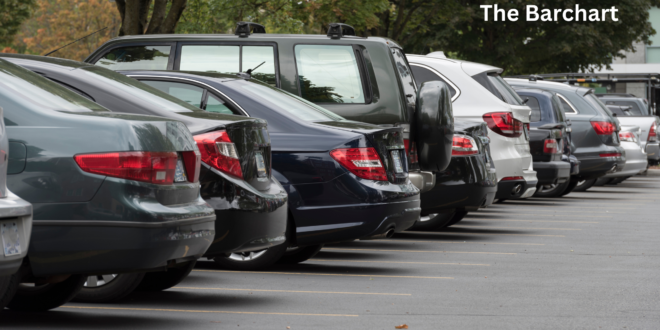Buying a used car market can be a smart financial decision, but finding the best deal requires careful research and planning.
The used car market is vast, with options ranging from private sellers to dealerships and online marketplaces.
To secure the best deal, start by setting a budget that includes not just the purchase price but also insurance, taxes, and potential maintenance costs.
Understanding market trends is crucial, as prices fluctuate based on demand, seasonality, and economic factors.
Researching reliable car models is essential to avoid frequent repairs.
Some brands, like Toyota and Honda, are known for their durability, while luxury brands may have higher maintenance costs.
Always check a vehicle’s history report through services like Carfax or AutoCheck to ensure it hasn’t been in major accidents or suffered from flood damage.
Timing your purchase strategically can also save you money.
Dealerships often offer discounts at the end of the month or year to meet sales quotas.
Additionally, negotiating is key—never settle for the initial asking price.
Test-driving the car, getting a mechanic’s inspection, and verifying paperwork before finalizing the deal will help you make an informed decision and avoid costly mistakes.
Understanding the Used Car Market Landscape
The used car market is constantly evolving, influenced by factors such as economic conditions, supply and demand, fuel prices, and consumer preferences.
With rising prices of new cars, many buyers are turning to pre-owned vehicles as a cost-effective alternative.
However, understanding market trends is crucial to making an informed decision.
Factors like depreciation rates, seasonal fluctuations, and regional demand impact pricing.
Some models retain their value better than others, while external factors like chip shortages or fuel costs can significantly affect availability and affordability.
A key aspect of the used car market is its diversity.
You can find everything from budget-friendly compact cars to luxury vehicles at a fraction of their original price.
Additionally, platforms like dealerships, private sellers, and online marketplaces provide various purchasing options.
Staying updated on market trends helps buyers secure the best deals.
Resources like industry reports, car valuation websites, and consumer reviews are valuable tools for assessing current conditions.
Researching past sales trends can also give insight into when and where to buy a used car for maximum savings.
By fully understanding the market landscape, buyers can make confident decisions and avoid common pitfalls such as overpaying or purchasing unreliable vehicles.
Setting a Realistic Budget

Budgeting is the most important step when buying a used car.
Many buyers focus only on the purchase price but forget additional costs such as taxes, registration, insurance, and maintenance.
A realistic budget ensures you get the best value for your money while avoiding financial strain.
Start by determining how much you can afford to spend. Financial experts recommend that your monthly car expenses (including loan payments, insurance, and fuel) should not exceed 15-20% of your monthly income.
If you’re paying in cash, ensure you have enough savings left for emergencies.
When setting a budget, consider factors like depreciation, fuel efficiency, and potential repairs.
Some older cars may have a lower upfront cost but require frequent maintenance, increasing overall expenses.
Certified pre-owned (CPO) vehicles, although slightly more expensive, often come with warranties and quality assurance, making them a safer investment.
It’s also important to research financing options if you’re considering a loan.
Compare interest rates from different banks and credit unions to find the best deal.
Some dealerships offer in-house financing, but their rates can be higher than independent lenders.
By carefully planning your budget, you’ll ensure a smooth purchase without financial stress in the long run.
Researching Reliable Car Models
Not all used cars offer the same value and reliability.
Some brands and models are known for their durability, while others have frequent mechanical issues.
Researching reliable car models helps buyers make a long-term investment rather than dealing with endless repairs.
Start by checking consumer reports and reviews. Websites like Kelley Blue Book (KBB), Edmunds, and Carfax provide valuable insights into vehicle reliability and long-term performance.
Look for models with strong resale value, lower maintenance costs, and good fuel economy.
Japanese brands like Toyota, Honda, and Subaru are well-known for their reliability and longevity.
Meanwhile, some European luxury brands may have high maintenance costs, making them expensive to own in the long run.
Check recall history and common issues reported by owners.
Some cars have known manufacturing defects, while others may require frequent expensive repairs.
Forums and owner communities can provide real-world experiences and recommendations.
If you’re looking for a fuel-efficient option, consider hybrid or electric models.
However, battery replacement costs should be factored into the decision.
By choosing a reliable model, you minimize the risk of unexpected breakdowns and costly repairs, ensuring a smooth ownership experience.
Exploring Various Purchasing Options
There are several ways to buy a used car, each with its own pros and cons.
Choosing the right platform can impact pricing, car quality, and overall convenience.
- Dealerships: Offer certified pre-owned cars with warranties but tend to have higher prices than private sellers.
- Private Sellers: Can provide lower prices, but buyers must conduct thorough inspections to avoid hidden issues.
- Online Marketplaces (OLX, Craigslist, Facebook Marketplace, etc.): Provide a wide selection but require caution to avoid scams.
- Auction Houses: Offer potential deals but require knowledge about bidding strategies.
- Rental Car Sales: Companies like Hertz and Enterprise sell used rental cars, often well-maintained but with higher mileage.
Each option has different pricing structures and risks.
For example, dealership cars may be more expensive but provide buyer protection, whereas private sellers often offer better deals with minimal paperwork.
When choosing a platform, consider factors like financing options, warranty availability, and the ability to test-drive the car.
Always verify the car’s history report before making a decision.
Timing Your Purchase Strategically

Timing plays a key role in securing the best deal in the used car market.
Prices fluctuate throughout the year based on demand, inventory levels, and economic conditions.
- End of the Month/Quarter: Dealerships often offer discounts to meet sales targets.
- End of the Year (November-December): Many sellers reduce prices to clear inventory before new models arrive.
- Tax Season (April-May): Demand increases as buyers receive tax refunds, leading to higher prices.
- Summer Months: Higher demand for family cars and SUVs may result in price hikes.
Researching seasonal trends helps buyers plan their purchases wisely.
Avoid peak buying times to negotiate better deals.
RELATED ARTICLE: Bizhunet
Conclusion
Buying a used car can be a financially smart move, but it requires thoughtful planning, informed research, and strategic decision-making to truly reap the benefits.
The used car market is broad and dynamic, offering everything from budget-friendly daily drivers to luxury models at reduced prices.
However, this diversity also introduces complexities. To navigate them successfully, buyers must approach the process with clarity and caution.
A critical first step is setting a realistic budget—not just for the initial purchase but for the full scope of ownership costs, including insurance, taxes, registration, and ongoing maintenance.
Being financially prepared ensures you avoid unnecessary stress or debt later on.
Equally important is researching reliable car models.
Vehicles from brands like Toyota, Honda, and Subaru often deliver better long-term value due to their dependability and lower repair costs.
Exploring various purchasing options—from dealerships and private sellers to online platforms and rental agencies—can broaden your choices and help you find the best deal.
Each option comes with its own pros and cons, so carefully weigh the trade-offs in price, warranty, and risk.
Regardless of the seller, always check the vehicle’s history report, conduct a test drive, and, if possible, get a professional inspection before finalizing the deal.
Timing your purchase strategically is another often-overlooked but crucial aspect.
Buying at the end of a month, quarter, or calendar year can lead to significant savings, as sellers are often eager to meet sales goals or clear out inventory.




